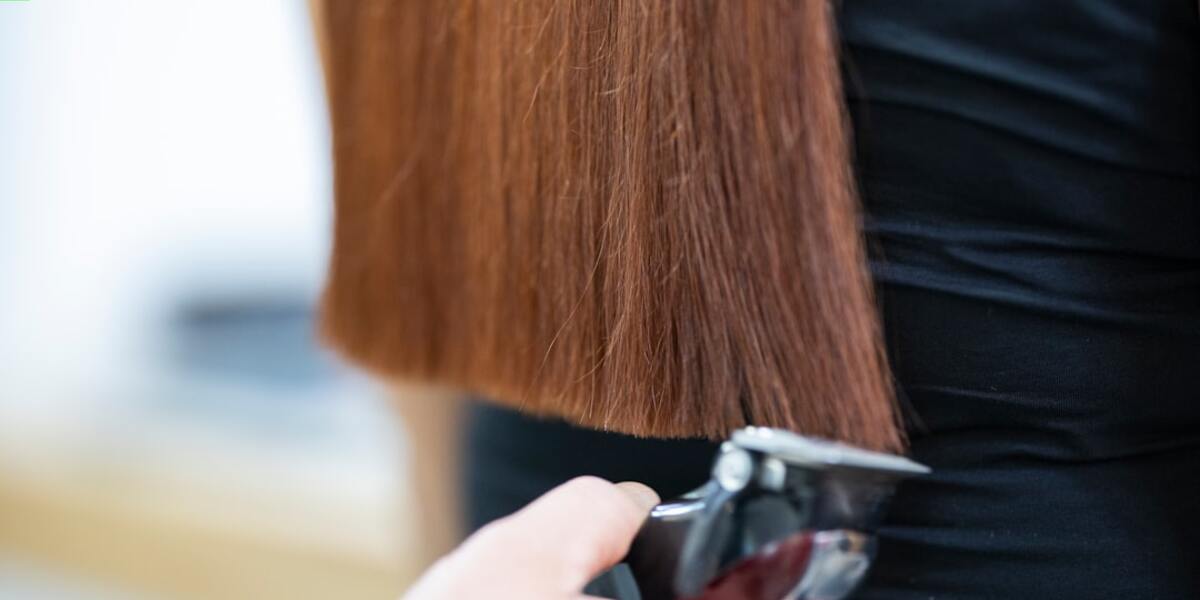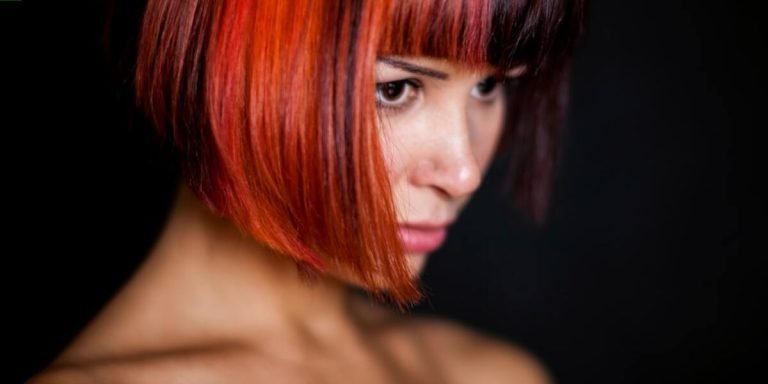Menopause Hair Care: Understanding the Changes and Solutions
Women must adapt to many bodily changes as they reach menopause, an inevitable stage of life. One often-overlooked aspect is hair health. Understanding and addressing menopause hair care becomes vital for maintaining lustrous locks during this time.
Hormonal fluctuations during menopause can cause thinning hair or even loss. While this is natural, you can overcome it. This article will help you understand the changes your hair undergoes during menopause and offer proactive solutions for effective post-menopausal grooming habits.
Did you know?
Did you know? During menopause, dropping estrogen levels can cause your hair to thin and become dry. This is due to the decrease in production of sebum – an oil that moisturizes your scalp and keeps your hair healthy.
Understanding Menopause-Related Hair Changes
Menopause marks a significant phase in every woman’s life, bringing various natural physical changes that often go undiscussed. These impacts often include hair transformations that many women experience during this period. Menopause-related hair changes can include:
- Minor adjustments
- Increased thinning
- Different textures
Hormonal fluctuations during menopause significantly affect hair health. Levels of estrogen and progesterone decrease, while testosterone stays constant, potentially disrupting hair growth cycles. This can lead to thinner strands from reduced production or a loss of volume overall. By understanding these mechanisms, you can better adapt and maintain optimal care for your hair.
To navigate through these biological shifts, gain correct knowledge about practices catering to post-menopausal needs. Maintaining lustrous radiance can continue at any age! Your approach should include:
- Nourishing follicles internally with a balanced diet that provides essential vitamins for healthy growth.
- Using topical treatments fortified with hydrating ingredients to combat dryness associated with this stage.
In conclusion, venturing into smoother transitions amidst menopause involves comprehending its possible effects over your tresses whilst uncovering suitable maintenance techniques thereby ensuring defying dullness never looked simpler than 2023!
Identifying Common Hair Issues During Menopause
Menopause marks a significant phase in a woman’s life, often accompanied by numerous physical changes, including altered hair condition. Hormonal imbalances during the transition to menopause can lead to various hair issues. Understanding common menopause hair care problems helps you better manage your mane during this unique life period.
Decreased estrogen levels during menopause cause many women to experience thinning hair. This hormone helps maintain healthy hair by:
- Encouraging growth
- Preventing premature entry into the shedding phase
As estrogen levels drop, many women find their once voluminous tresses appearing sparse and lackluster.
Menopausal years often lead to scalp dryness, resulting in brittle follicles prone to breakage. Estrogen keeps skin tissues, including the scalp, hydrated. As estrogen levels decline, natural hydration decreases, leading to:
- Frizzier hair texture
- Split ends
- Increased scalp sensitivity
This change makes typical grooming activities uncomfortable.
Hormonal Impacts on Hair Texture and Volume
The hormonal changes that occur during menopause significantly influence your hair’s texture and volume, which can be a surprise to many. But don’t worry – ‘menopause hair care’ isn’t as daunting as it sounds.
Firstly, let’s delve into how these alterations in hormones impact the structure of our tresses. The principal hormone at play here is estrogen. During menopause, levels of this female hormone diminish causing your locks to lose some of their natural moisture and shine.
Our mane turns drier because sebaceous glands producing scalp oils take a direct hit due to lowered estrogen levels, thus affecting overall lubrication and hydration for our strands. As much starker contrast than pre-menopausal years when we had an ample supply ensuring luxuriant growth.
Essential Nutrients for Healthy Hair in Menopause
Menopause triggers significant hormonal changes in a woman’s body, leading to physical alterations. These changes often result in hair-related issues like thinning, dryness, and increased shedding, which can cause distress. However, by nourishing your hair with the right nutrients, you can combat these effects and keep your hair looking healthy during this natural transition.
Optimal hair health during menopause requires protein as the first nutrient. Hair strands consist mainly of protein fibers, and lacking enough in your diet can weaken them. To maintain strand strength, include these protein sources in your daily meals:
- Lean meats
- Fish
- Plant-based proteins such as lentils and chickpeas
Proteins and Omega-3 fatty acids both contribute significantly to hair health. Omega-3s promote scalp hydration, preventing the brittleness that often accompanies post-menopausal hair. To benefit from these nutrients, include foods like walnuts, flaxseeds, and oily fish such as salmon in your diet. These foods help achieve not only lush locks but also support overall well-being due to their broad health benefits.
Vitamins and Minerals to Combat Thinning Hair
During menopause, many women experience changes in their hair. It might become thinner, drier or brittler due to hormonal fluctuations. Fear not!
Proper nourishment through essential vitamins and minerals can significantly improve your mane’s health during this phase.
One key element of menopause hair care is upping the intake of Vitamin A. This nutrient helps cells grow including our scalp’s fastest growing tissue—hair follicles! Incorporate foods like sweet potatoes, spinach or milk into your diet for a healthy dose.
Another great combatant against thinning strands is B-vitamins such as biotin which plays an integral role in maintaining strong locks by helping produce keratin—the protein responsible for sturdy tresses. Include eggs, almonds and legumes in your dietary regime to ensure sufficient levels are met.
Vitamin C should also be on the list when battling dryness related issues caused by age-related hormone shifts. Its antioxidant properties defend against oxidative stress that accelerates graying and aging process while its vital part in collagen production ensures thickness retention over time!
A crucial mineral worth mentioning here would be Iron—a deficit often linked with alopecia (or excessive hair loss). Foods high in iron include red meat, clams and lentils—integrating these will assist you stay atop of possible deficiencies leading to weakening strands.
The Role of Diet in Maintaining Scalp Health
During menopause, changes in hormonal levels can lead to a number of hair issues such as dryness, thinning and loss. However proper care and maintenance, particularly focusing on diet is pivotal for scalp health even during this phase.
Your diet is the cornerstone of your menopause hair care regimen. What you eat impacts not only your overall well-being but also the health of your hair. Dwindling estrogen levels in menopausal women can compromise their hair’s vitality, making it essential to replenish these nutrients through food intake.
Eat enough protein from lean meats or plant-based alternatives to enhance the texture and strength of your hair. Proteins, like keratin, make up most of each hair strand and consuming them can boost keratin production, helping preserve your hair’s integrity.
Omega-3 fatty acids work magic both inside out – they moisturise from within while concurrently combating inflammation that could possibly harm follicles thereby leading to unnecessary shedding. Fish varieties like salmon are rich sources although flaxseeds make an equally good vegan substitute.
Vitamin A ensures optimal sebum production to naturally lubricate the scalp and prevent dried-out roots. Vitamin E provides a robust antioxidant response that protects against damage from oxidative stress. B-vitamins promote the proliferation of red blood cells, which aids in transporting nutrients to various body parts, including the scalp.
Strategic Hair Care Routine Adjustments Post-Menopause
Make strategic adjustments to your hair care routine during and after menopause to maintain the health, shine, and body of your hair. Despite hormonal shifts causing thinning hair or dry scalp for women worldwide, you can navigate these changes and keep an impressive mane with the right regimen.
Firstly, incorporate deep hydration into your schedule. Due to decreased estrogen levels during menopause, you may experience a drier scalp than usual; therefore, focusing on moisturization is crucial. You might need to switch shampoos – choose brands with hydrating properties or those designed for menopausal hair issues. Complement shampooing with a rich conditioner that contains natural oils to nourish and lock in moisture by sealing the cuticle of each strand.
Remember, less is more with styling products post-menopause. Over-styling can stress your hair and cause breakage, particularly when it’s weakened from hormonal imbalances. Therefore, use heating tools sparingly and opt for air-drying whenever possible.
Adapting Your Washing and Styling to Reduce Damage
As you navigate through menopause, your hair concerns may evolve. Here are some tips to adapt your washing and styling regimen for better “menopause hair care”.
Firstly, re-evaluate your shampoo choice. During menopause, hormonal changes can cause dryness making it essential to switch to a hydrating shampoo. Infused with moisturizing agents like argan oil or shea butter will restore moisture balance into the strands.
Secondly, limit washing frequency as excess washes might strip natural oils from the scalp leading to further dryness and brittle hairs. Opting instead for twice-a-week schedule could work wonders—cleanse thoroughly but keep it balanced.
Next is conditioner application which shouldn’t be overlooked post-menopause due its richness in nourishing ingredients crucial in combating frizz and breakage while leaving locks beautifully soft and manageable.
Another aspect that needs modification during this phase is heat-styling approach. Frequent use of high-heat tools can zap away hydration which makes opting for lower temperature settings smart move – lesser damage without compromising on style!
Selecting the Right Products for Mature Hair Needs
- Tailor special care to address changes in texture and density during menopause.
- Choose products wisely to meet the needs of mature hair, ignoring those claiming false miracles.
Firstly, understanding what “menopausal” hair experiences help choose suitable solutions. Typically post-menopause, most women witness dryness due to decreased oil production by scalp glands coupled with thinning caused by lower estrogen levels affecting follicle health adversely.
This means selecting moisture-rich shampoos and conditioners are paramount during this period since they provide much-needed hydration bestowing suppleness back into the strands while also helping combat frizz that may increase as a consequence of dryness.
Selecting sulfate-free options can further ensure gentler cleaning without stripping essential oils from your precious locks which otherwise could exacerbate already present dryness making them more fragile leading towards breakage – an undesirable outcome surely!
Use thicker formulations like masks or deep conditioners with higher nutrient concentrations at least once a week. These products fortify strands and build overall strength, reducing the likelihood of thinning or loss — crucial aspects of menopause hair care that require proper attention to prevent significant impacts on appearance over time.
Conclusion
Menopause hair care should never be ignored. It’s your crowning glory and requires attention and optimal care during this significant life phase. Understand the changes in hair health and experiment with solutions to maintain luscious locks amidst hormonal tides.
Browse our website for expert “Hair Care and Maintenance” tips. Explore comprehensive insights tailored to different conditions, preferences, age groups, and more. Every strand counts for self-confidence.







